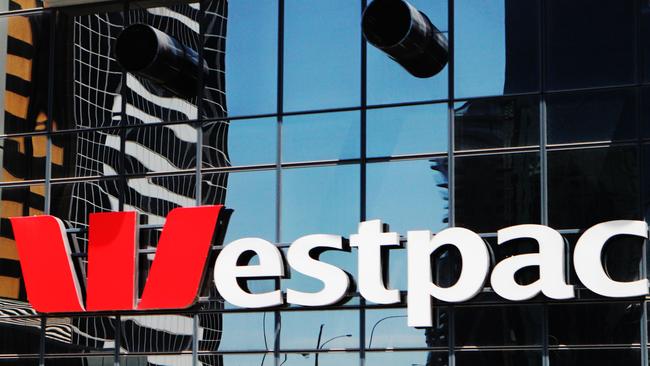Westpac accused by ASIC of fixing bank bill swap rate
Westpac is the second Australian bank formally accused by ASIC of manipulating the bank bill swap rate.

Westpac has become the second Australian bank formally accused by the corporate watchdog of manipulating the bank bill swap rate in a claim singling out the managing director of its treasury.
The Australian Securities & Investments Commission has filed a claim in the Federal Court against Westpac for unconscionable conduct and market manipulation, claiming the bank sought to manipulate the bank bill swap reference rate on 16 occasions between April 6, 2010, and June 6, 2012.
The move comes a month after the filing of a claim against ANZ, which alleges 44 occasions of manipulation of the benchmark BBSW rates.
The statement of claim singles out the managing director of group treasury, Colin Roden, as attempting to manipulate the BBSW for the benefit of the bank, in a claim that could result in fines of about $18 million against the bank.
The Commonwealth Bank and NAB are also under investigation by ASIC as part of a four-year probe into manipulation of interest rates by Australian banks.
In recorded telephone conversations from April 2010, Mr Roden is heard discussing a “massive rate set today” by Westpac.
“Make a good day and maybe make a bit ... We had a massive rate set today like we had like a f..king, shit 14 billion of one month ... I had to buy,” Mr Roden is quoted as saying.
“Today I got one month from everyone because I pushed the one month down, right, it was going to set at 20 right, then I got it down to 23.
“I know it’s completely wrong but, I knew it was completely wrong but f..k it, I might as well, I thought f..k it. We’ve got so much money on it, we just had to do it right.”
In other conversations Westpac employees are reported as saying: “Well Col, spent a crapload of money yesterday and sold quite a bit today ... he bought like 2½ billion dollars’ worth of stock for the rate set so ... he’s sold today.”
ASIC’s hand has largely been forced in deciding to file a claim against Westpac for fear of being shut out under the six-year statute of limitation restrictions under the Corporation Act.
There have been limited opportunities for both parties to negotiate a settlement because of the tight timeframe.
It is understood the negotiations between Westpac and ASIC have been going on for a fraction of time compared with the negotiations with ANZ — which lasted 12 months.
The Australian recently revealed ASIC had interviewed about 25 people at Westpac, including senior executives, and had issued a list of 120 people to Westpac as “people of interest” in the investigation.
It is understood Westpac will argue the recorded conversation with Mr Roden and a colleague discussed interest rates being wrong, not his behaviour, and that large trades came at the end of the Easter four-day weekend meaning volumes were unusually high.
In a statement last night Westpac said it denied the allegations and would defend the claims and criticised ASIC for only detailing one of the alleged events.
“Westpac will vigorously defend court proceedings by ASIC naming the bank in connection with ASIC’s ongoing industry-wide investigation into past practices in the interbank short-term money market and its impact on the Bank Bill Swap Rate,” it said.
“The alleged misconduct occurred between April 2010 and June 2012. In the court documents, ASIC has provided selected details of one of the 16 instances that they claim to have identified across that period.”
In a statement, ASIC said the Westpac trading “intended to create an artificial price for the bank bills”.
“ASIC alleges that on these days Westpac had a large number of products which were priced or valued off BBSW and that it traded in the bank bill market with the intention of moving the BBSW higher or lower,” ASIC said.
“ASIC alleges that Westpac was seeking to maximise its profit or minimise its loss to the detriment of those holding opposite positions to Westpac’s.”
In its claim ASIC details the trade on April 6, 2010, claiming Westpac knew that it had a short exposure of about $14 billion, alleging it forced the BBSW rate lower through purchases by its treasury head.
“Acting through Mr Roden, Westpac bought 30-day Prime Bank Bills with a face value of $1.853bn in the Bank Bill Market, comprising 100 per cent of all purchases of that tenor made through brokers on that day,” court documents state.
“That trading did not constitute engagement in a genuine process of supply and demand in the Bank Bill Market as it was conducted in order to lower the rate at which the BBSW was set on that day.”
ASIC will be aiming for a maximum penalty of $1m per breach for market manipulation or $1.1m per breach for unconscionable conduct, meaning Westpac could be forced to pay about $18m in fines if it were found liable.
On Monday, ASIC asked the Federal Court for the trial against ANZ not to take place until February next year because of the “immense task” before it in proving the allegations.



To join the conversation, please log in. Don't have an account? Register
Join the conversation, you are commenting as Logout